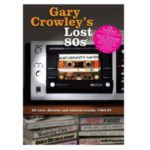Authenticity is a zeitgeist touchstone for the contemporary music scene. Fans seem to care not only what is being said but who is saying it, and whether the singers are a legitimate vessel for those words. Though beset with cultural irony, we still cling to the idea of sincerity, at least in certain arenas; modern ‘Punk’ is one of them. Within the genre, there are themes as well-worn as they are sensitive – and (certainly in the UK), class is perhaps the most potent among these. Even when the topic is not being addressed directly, the oblique emblems that pop stars use to signal the side of tracks they’re from, matter. This week, the lead singer of one of the UK’s most ‘authentic’ bands, the Sleaford Mods, seemed to attack the class authenticity of another ‘authentic’ band, Bristol’s Idles.
“And they were nice lads, polite online and stuff. But I thought they were kind of a street band, there were lines like ‘Tarquin’ that would insinuate that they were knocking the middle classes, but it turns out they’re not working class.” said Jason Williamson.
“That offended me, because I then held the belief that they were appropriating, to a certain degree, a working-class voice.”
“Music can’t solve political problems. And I think their take on it is cliched, patronising, insulting and mediocre. And that’s why I have a problem with them. I take music seriously, and I’ve come from a place where this music has been created. Without that, we wouldn’t be here.”
What is like to be yourself? To speak with an ‘authentic’ voice? Many years ago, in a season full of wistful reflection, a young man called Morrissey appeared to suggest a rather ironic answer – that sometimes it is better to speak with the enlightened voice of others (Keats, Yeats, Wilde) than to speak your own dizzy words. Though surely someone somewhere will always know, plagiarism (if that’s what it is) can perhaps focus our lacklustre thoughts into strong ideas.
Of course, in pop music, speaking with your own voice seems a mysterious process. The ’60s beat generation spoke about England through the music of America. Amy Winehouse, the generational voice of 2000s London, sung her whole career in an American accent. Oasis, those spokesmen of the working class ‘lad’ generation nicked their biggest anthemic riff from T-Rex, (don’t even mention The Beatles) and shared their politics with that bastion of the middle class, Tony Blair. As Morrissey suggested a long time ago (and must rue perhaps his own intimations of mortality from his pad in Los Angeles), it’s hard to be original, it’s hard to be consistent. Billy Bragg lives in a big house in the country now. We wouldn’t be surprised to find it in the same nice area as Blur‘s cheese farming bass player. Pop ‘rocker’ Robbie Williams lives in a big bling house overlooking the Crowley-like mansion of Jimmy Page. Dr. Dre put together ‘NWA‘ just like a pop group – the ‘political’ one, (Cube), the ‘Street’ one, (Eazy), the ‘DJ’ etc, just like Mclaren earlier assembled the Sex Pistols, or Simon Cowell later, the Spice Girls. It is a ‘music industry’ after all.
When ‘the English’ sing about themselves, the iconography often gets confused. Like a ‘Union Flag’ on an Italian Scooter or a ‘Gibson’ Guitar, or more recently those icons of Urban Britishness – a can of ‘Stella Artois’, an ‘Adidas’ tracksuit and a pair of ‘Nike’ trainers. At least the ’70s still had ‘The Sweeney’. Now we’ve got ‘Life on Mars’. In Lala Land, Jon Lydon peers over the fence of Alex Turner, who lives next door to Billy Duffy. The English Abroad. But of course, as anyone like Jarvis Cocker who studied Postmodernism at Art College would know, it’s all just text now. The ‘author’ is dead. There is no final signified. The Mozart Requiem is used to advertise Snickers. Nina Simone for Muller yoghurt. A Primark tracksuit made in Malaysia symbolises British working class identity. Everything is translated, everything is changed. Bricolage as depth.
And then we hear those voices, the sound of the rage. Against this abstraction, this purposelessness, this misery of disappointment:
Jobseeker!
Can of Strongbow, I’m a mess
Desperately clutching onto a leaflet on depression
Supplied to me by the NHS
It’s anyone’s guess how I got here
Anyone’s guess how I’ll go
I suck on a roll-up – pull your jeans up
Fuck off, I’m going home
And it feels bracing, it feels ‘real’ somehow. Together we taste that crappy cider – flick through that bureaucratic pseudo-reassuring leaflet – smoke that joyless rollup – queue up in that over-bright waiting room. We recognise it. We hate it too. We sing along and hum the tune on the way to Tescos. And somewhere else, in another set of headphones, another singer sings:
Why don’t you get a job?
Even Tarquin has a job
Mary Berry’s got a job
So why don’t you get a job?
Well done
Mary Berry? ‘Tarquin’? It must be satirical and comedic, right? The singer is singing through someone else’s voice, against himself somehow – the ‘well done’ bit is patronising, shoulder tapping, annoying. Funny. A non-‘Brit’ listener might google this Mary Berry – she’s a ‘British Institution’ a ‘celebrity’, a ‘cake maker’. Perhaps they, contemplating this in the unlikely event of knowing someone with an old fashioned, posho ‘Roman’ name like ‘Tarquin’, and ponder the fact that ‘even’ he ‘has a job’. There must be something wrong with him perhaps – as the singer suggests, there must be some kind of absurdity if we too – the listener – should ape the actions of this mythical ‘Tarquin’ and this wholesome boring ‘Mary’, to receive such hollow praise, for a thing ‘well done’. We guess this from the singer’s tone – and the subsequent lyrics – he does not think this ‘job’ a satisfying object of his aspirations. Getting a ‘job’ is something more like getting ‘a medal’ (we think of war and death and Ben Elton) and as he says in the chorus, ‘I’d rather cut my nose off / To spite my face / I’d rather bite my nose off/ To spite my face’. The two singers are clearly ‘angry young men’. They’re pissed off. They sense something absurd in this ‘job’ business. The necessity of it, the seeming obsequiousness of it. But the stance is different. The refrain ‘Well Done’ in the second singer’s song is ironic. Joking. The idea is obviously that by doing these other things, one earns social approval, social ‘capital’ – getting a job, a degree, liking reggae, watching football. We recognise the critique from groups as diverse and mainstream as Good Charlotte or Billy Joel and more directly, The Clash‘s ‘Career Opportunities’. We work from ‘9 to 5’ with Dolly. We dance in the disco. Saturday Night Fever. The other singer, the first singer, he hates the same thing, but his vision is personal. Direct. Beyond sarcasm. He’s had a job – ‘three managerial positions …previously held with quite Reputable companies’, but he doesn’t even trust himself now. His self-knowledge is nihilistic, self-destructive: ‘I’d just end up robbing the fucking place/ You’ve got a till full of 20s staring at you all day / I’m hardly going to bank it/ I’ve got drugs to take, and a mind to break’.
The difference between the singers is between the two perspectives – between the Idles’ satirical, sarcastic account of petty tediums: jobs, reggae and football. And the Sleafords’ bottom of the jar dissolution – under the feet of it, where, as the singer says in another song, ‘the smell of piss is so strong, It smells like decent bacon’.
Do these singers see eye to eye? Are they describing something similar, something ‘real’? It’s hard not to think that they’re attempting to describe the same thing from different perspectives – that same ‘system’ which has always been both the bugbear and the ever rich lyrical vein for ‘anti-establishment’ folk singers and rockers, rappers and comedians. The question might then become more ad hominem – is this the kind of singer we can trust? Can they tell us something, speak for us perhaps, that wider ‘collective’?
And thus is reached the familiar, ever galling problem for the Postmodern Age, which has so abandoned the meaning of the ‘author’ in the panoplies of the text. Dare we return to the author? To the man?
The singer of ‘Jobseeker’ asks us to do just that. He wants us to know his feeling directly. At once, for ‘real’. The scars upon the body, as proof of living. His words, scratches upon the flesh of his existence. ‘4 Real’. In rhetorical terms, this is what Aristotle would call ‘Ethos’. The character of the speaker. But ironies abound. The other singer, the singer of ‘Well Done’ is being ironic, in order to achieve a shared rhetorical ‘Pathos’ – to arouse the emotions of his audience, to make them share his disdain of the patronising praise, the reggae, the endless Post Tony Blair Media Degrees.
To address ‘Ethos’ and ‘Pathos’, these are two rhetorical ways of convincing an audience. The last one? Seek the Logos. i.e. Is it true? The Logos refers to the strengths or weaknesses of our arguments. And this it seems brings us to the crux of the matter. Is a song an argument? A case to be made? Is a song, with its chords and its drum beats, and its emotions, a line of logic? A refutable case? Or a piece of art? TS. Eliot said that Tradition was more Important than the Artist – that Truth mattered most. And you know what Wilde said?
‘All Art is Quite Useless’.
Caliban stares long in the mirror, seeking his own reflection.
John Vistic’s Rock n Roll soundsystem plays The Brexit Punk Rock break down event with St.Pierre Snake Invasion at the crofters in Bristol on the 29th March, more information here.
On the same day, they’re releasing two different mixes of our Factory session online, with a newer more badass version of King Ambulance.




